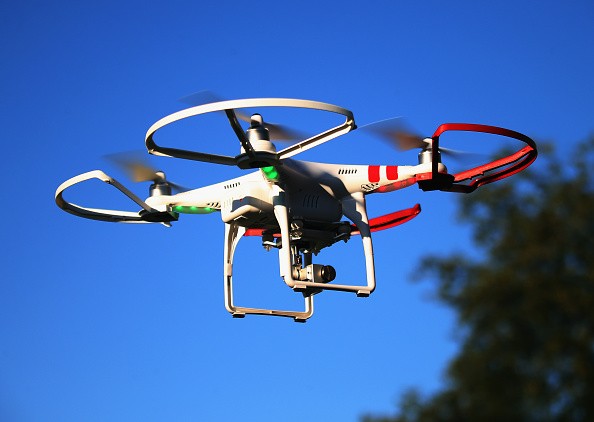A British company, Intelligent Energy, has claimed that it may have a breakthrough solution to combat low battery issues in drones. The company is aiming at revolutionizing drone delivery by increasing the flight time and decreasing refuel requirement.
Short battery life has been a major shortcoming for drones. The automated quadcopter machines could only stay in flight for a standard duration of 20 minutes. On its official website, Intelligent Energy stated that it conducted the experiment on a DJI Matrice 100 drone by rigging it with a prototype hydrogen fuel cell. In the test, the drone successfully completed more than an hour in flight, which is much more than the usual flight time of a regular drone.
Hydrogen fuel cell attached to the drone converts hydrogen gas into electricity through a chemical process that emits water vapor in the form of a by-product. Hydrogen fuel cell is available in the form of cartridges, which makes it easier to swap whenever the drone runs out of battery. The swapping hardly takes time and sends the drone back in operation quickly.
In statement posted on Business Wire, Julian Hughes, Group Business Development Director and Acting Managing Director for Intelligent Energy's Consumer Electronics Division said, "Drones are one of the most exciting new technologies. Even with advanced batteries their value is limited. For commercial use, they need to offer better flight times and range."
Intelligent Energy has been conducting such experiments with fuel prototypes for quite a while. In one of its experiments, the company employed a hybrid technique wherein it used the fuel cell to constantly charge a conventional battery. Another experiment was conducted with just one hydrogen fuel cell, which was arranged like the fuel system of cell-based cars.
The experiment did address the short battery issue to an extent, but it could not match power demand of a drone when it faces heavy wind or any other hindrance. Explaining the technique further, Hughes explained that both the experiments done with different fuel strategy have been successful, and now the company is trying to evaluate the most suitable method between the two.
Intelligent Energy will be showcasing the result of its experiments at the Consumer Electronic Show (CES) next year. The company is hoping to impress drone manufacturers so that it can offer the hydrogen fuel cell power source as an option. However, it has no plans to introduce the method as an after-market product for regular consumers, although, It does have one hydrogen fuel cell on that is already available for the general buyers.



























